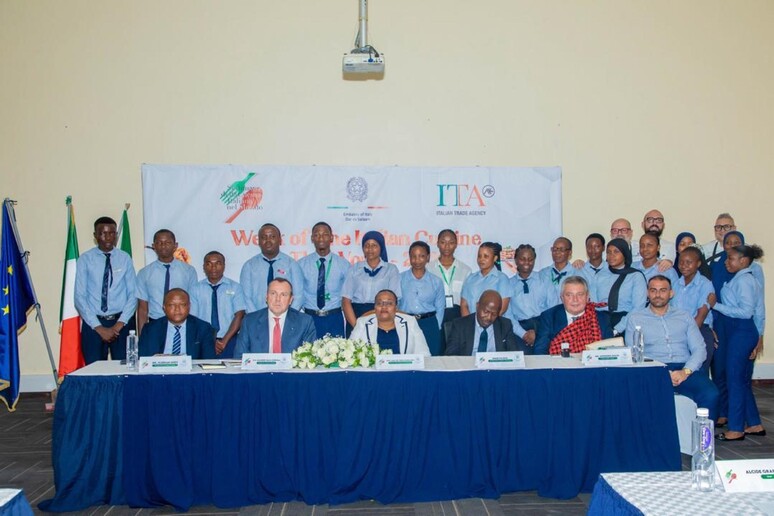On the occasion of the ninth edition of the Week of Italian Cuisine in the World, the Italian Embassy in Dar es Salaam organised a series of initiatives to promote Italian cuisine in Tanzania, in collaboration with the Foreign Trade Agency (Ita).
Italian cuisine is already well known in Tanzania, also thanks to numerous Italian investments in the tourism sector and the conspicuous presence of Italian tourists, both in the continental part of the country and in Zanzibar
From 16 to 23 November, numerous Italian restaurants in Dar es Salaam, Iringa, Arusha and various locations in Zanzibar organised themed evenings with wine tasting and regional specialities. In order to allow the Tanzanian public to taste the excellent cuisine of renowned chefs from Enaip (Ente nazionale Acli istruzione professionale) Veneto and Enaip Piemonte, the Italian Embassy hosted two gala evenings in Dar es Salaam and Stone Town (Zanzibar), also with the participation of Zanzibar's Minister of Trade and Industrial Development, Omar Said Shaaban, and Minister of Health, Ahmed Mazrui.
On 19 November, Enaip Veneto, a leader in training in the hospitality sector in Italy and abroad since 1953, signed a three-year memorandum of understanding with the National college of tourism, with the aim of strengthening the skills of trainers and students in the tourism-hospitality sector in Tanzania.
Present at the signing ceremony were the Tanzanian Minister of Natural Resources and Tourism, Pindi Chana, and Ambassador Giuseppe Coppola, who took the opportunity to point out that the Italian Development Cooperation intends to support skills upgrading and capacity building in the hospitality and tourism sector in the near future, with a special focus on the Zanzibar archipelago.
During the events, the embassy emphasised the health benefits of Italian cuisine, the highest expression of the Mediterranean diet, recognised by Unesco as an intangible cultural heritage of humanity. The embassy also made the Tanzanian public aware of the phenomenon of Italian sounding, which is unfortunately also widespread in Tanzania, inviting the local public not to buy products passed off as Italian but which in reality do not adhere to the rigorous quality standards of Made in Italy.
ALL RIGHTS RESERVED © Copyright ANSA











